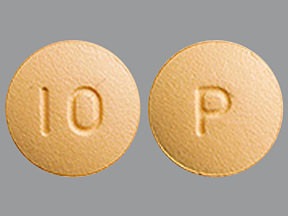PRASUGREL - ORAL
PHONETIC PRONUNCIATION: (PRA-soo-grel)
COMMON BRAND NAME(S): Effient
GENERIC NAME(S): prasugrel HCl
Uses
USES: Prasugrel is used with aspirin by patients with heart disease (recent heart attack, unstable angina) who undergo a certain heart procedure (angioplasty). This medication helps to prevent other serious heart/blood vessel problems (such as heart attacks, strokes, blood clots in stents). It works by blocking platelets from sticking together and prevents them from forming harmful blood clots. This "anti-platelet" effect helps to keep blood flowing smoothly in your body.
How to use PRASUGREL - ORAL
HOW TO USE: Read the Medication Guide and, if available, the Patient Information Leaflet provided by your pharmacist before you start taking prasugrel and each time you get a refill. If you have any questions, ask your doctor or pharmacist. Take this medication by mouth with or without food as directed by your doctor, usually once a day. Your doctor may direct you to take this medication with low-dose aspirin (usually at dosages of 81-325 milligrams a day). Follow your doctor's instructions carefully. It is very important to take prasugrel exactly as directed. Do not increase your dose or take this medication more often than prescribed. Your condition will not improve any faster, and your risk of side effects will increase. Also, do not stop using this medication unless directed by your doctor. The dosage is based on your medical condition, weight, and response to treatment. Use this medication regularly to get the most benefit from it. To help you remember, take it at the same time each day.
Side Effects
Precautions
Interactions
Overdose
Images
Reviews
Faq for PRASUGREL - ORAL
Prasugrel - Oral is a medication used to prevent heart attacks, strokes, and other serious heart problems in people who have had a recent heart attack or certain types of chest pain (unstable angina).
Prasugrel - Oral works by preventing platelets in the blood from sticking together and forming clots. This helps to prevent blockages in blood vessels that can lead to heart attacks and strokes.
Prasugrel - Oral should be taken exactly as prescribed by your doctor. Typically, it is taken with or without food, once daily. It is important not to stop taking Prasugrel without consulting your doctor first, as it may increase your risk of heart problems.
Common side effects of Prasugrel - Oral may include bleeding, bruising, stomach upset, and diarrhea. It is important to seek medical attention if you experience severe bleeding, difficulty breathing, or any other serious side effects.
It is important to inform your doctor about all medications you are taking, including prescription, over-the-counter, and herbal supplements. Some medications, such as certain antibiotics and antifungal drugs, may interact with Prasugrel - Oral and increase the risk of bleeding.
Prasugrel - Oral may increase the risk of bleeding, so it is important to inform your doctor about any recent injuries, surgeries, or medical conditions that may increase your risk of bleeding. It may also interact with certain medications, so it is important to disclose all medications you are taking to your doctor.
It is generally recommended to avoid excessive alcohol consumption while taking Prasugrel - Oral, as alcohol can increase the risk of bleeding. It is best to consult with your doctor for specific guidance on alcohol use.
The duration of Prasugrel - Oral treatment will depend on your individual condition and your doctor's recommendation. It is important to follow your doctor's instructions and not stop taking the medication without consulting them first.
Prasugrel - Oral is not recommended during pregnancy or breastfeeding, as it may pose risks to the fetus or infant. It is important to discuss potential alternatives with your doctor if you are pregnant or planning to become pregnant.
Warning
WARNING: Prasugrel can rarely cause very serious (possibly fatal) bleeding. Tell your doctor right away if you notice any signs of serious bleeding. See also Side Effects and Precautions sections.
Disclaimer
IMPORTANT: HOW TO USE THIS INFORMATION: This is a summary and does NOT have all possible information about this product. This information does not assure that this product is safe, effective, or appropriate for you. This information is not individual medical advice and does not substitute for the advice of your health care professional. Always ask your health care professional for complete information about this product and your specific health needs.


No Reviews Yet